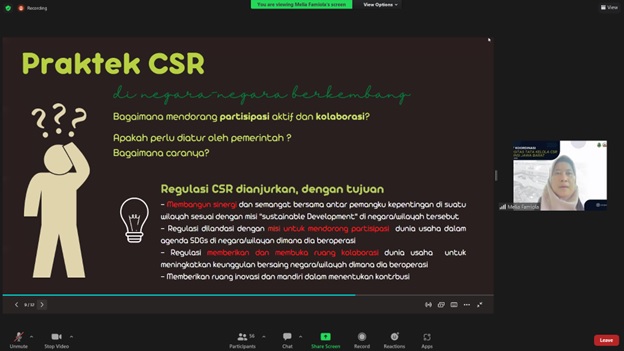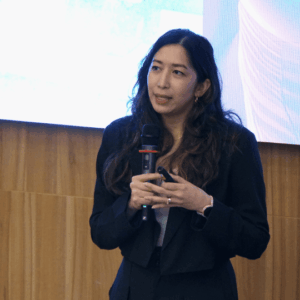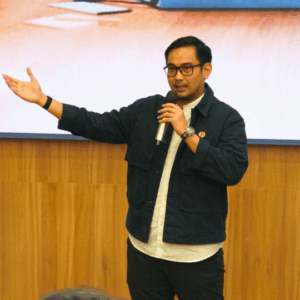The government and business actors play distinct roles in carrying out their missions. The government serves as the orchestrator or administrator of regional governance, whereas business actors concentrate on their respective fields and industries to find economic value. What are academics’ perspectives on aligning these different thinking paradigms in light of this distinction? How can the two parties work together to develop the principles of sustainable development?
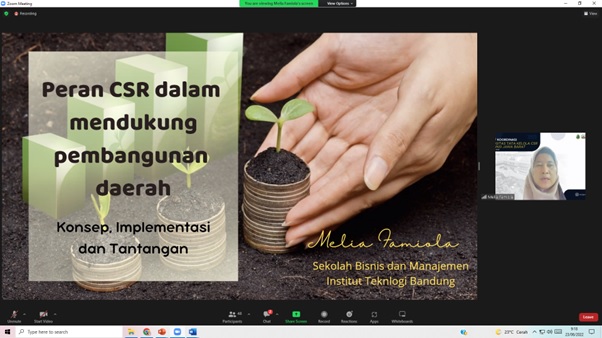
Melia said that the issue of sustainable development arose following World War II. It has shifted from focusing solely on the economic impact to focusing on the environment. The issue persisted; even though business, on the one hand, solves employment problems, it also has an impact on the environment.
The principle that responsibility for the environment is not only for the human beings but also on their environment as a whole. “It will be unbalance if companies only consider the economic impact but not the social and environmental aspects,” said Melia.
Sustainable Development Principles
The principle of sustainable development is divided into five parts. The first is the aspect of well-being, in which we must be able to ensure a source of food and other sources of life for people’s welfare. The second is justice, with which we can ensure a better life and promote world peace. We can improve, embrace, and provide opportunities for marginalized people if we work together.
The third principle is the planetary boundary, where we must adapt to the earth’s limitations or carrying capacity. Fourth is efficiency & sufficiency; limited resources such as petroleum, minerals, metals, and others must be managed efficiently and without waste. The final principle is good governance, in which everyone is encouraged to tell and explain management that adheres to standards and has a positive impact.
West Java’s Sustainable Development
Sustainable development cannot be accomplished on its own. However, it must be done in collaboration and coordination between the government and the private sector. With this collaboration, it is hoped that social innovations will emerge, which in turn will positively impact long-term development.
On the private side, CSR’s role in the development of an area is primarily a vehicle for effecting change where a traditional business is transformed into a sustainable business model through social and environmental responsibility.
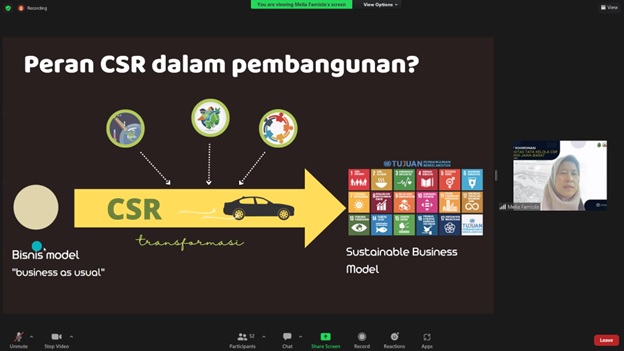
On the other hand, the private sector also requires government assistance. Without the government as an orchestrator, the private sector will be lost.
“The government must continue disseminating the sustainable development agenda to relevant parties. This is done to raise awareness of the significance of the sustainability principle. Furthermore, it is necessary to divide the government’s role and provide opportunities for the private sector to participate in the planning and preparing the company’s CSR program. This can be accomplished by developing policies and programs that can motivate and encourage innovation, allowing businesses to synergize with West Java’s sustainable development agenda,” Melia concluded.

